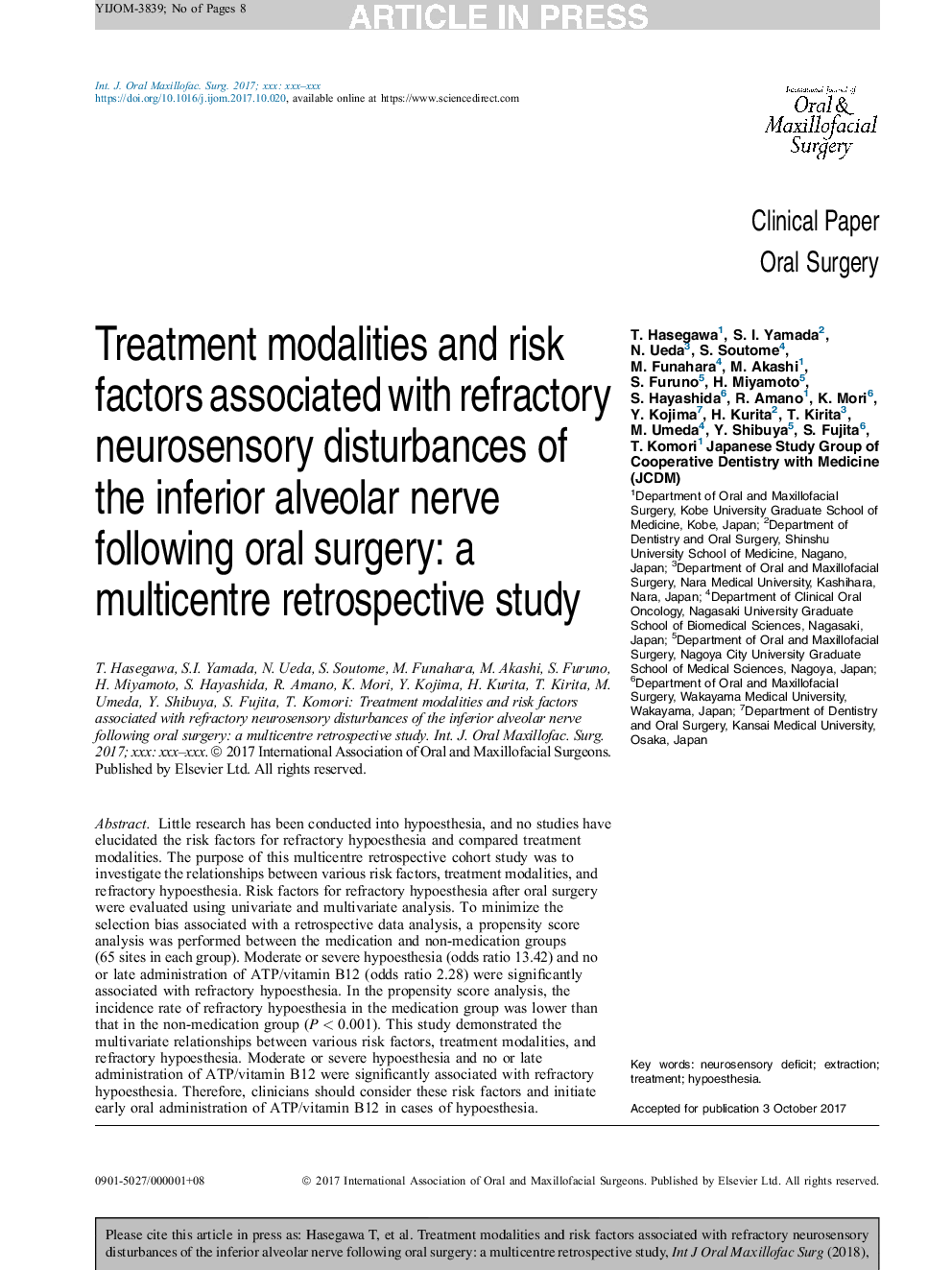| Article ID | Journal | Published Year | Pages | File Type |
|---|---|---|---|---|
| 8697812 | International Journal of Oral and Maxillofacial Surgery | 2018 | 8 Pages |
Abstract
Little research has been conducted into hypoesthesia, and no studies have elucidated the risk factors for refractory hypoesthesia and compared treatment modalities. The purpose of this multicentre retrospective cohort study was to investigate the relationships between various risk factors, treatment modalities, and refractory hypoesthesia. Risk factors for refractory hypoesthesia after oral surgery were evaluated using univariate and multivariate analysis. To minimize the selection bias associated with a retrospective data analysis, a propensity score analysis was performed between the medication and non-medication groups (65 sites in each group). Moderate or severe hypoesthesia (odds ratio 13.42) and no or late administration of ATP/vitamin B12 (odds ratio 2.28) were significantly associated with refractory hypoesthesia. In the propensity score analysis, the incidence rate of refractory hypoesthesia in the medication group was lower than that in the non-medication group (PÂ <Â 0.001). This study demonstrated the multivariate relationships between various risk factors, treatment modalities, and refractory hypoesthesia. Moderate or severe hypoesthesia and no or late administration of ATP/vitamin B12 were significantly associated with refractory hypoesthesia. Therefore, clinicians should consider these risk factors and initiate early oral administration of ATP/vitamin B12 in cases of hypoesthesia.
Keywords
Related Topics
Health Sciences
Medicine and Dentistry
Dentistry, Oral Surgery and Medicine
Authors
T. Hasegawa, S.I. Yamada, N. Ueda, S. Soutome, M. Funahara, M. Akashi, S. Furuno, H. Miyamoto, S. Hayashida, R. Amano, K. Mori, Y. Kojima, H. Kurita, T. Kirita, M. Umeda, Y. Shibuya, S. Fujita, T. Komori,
